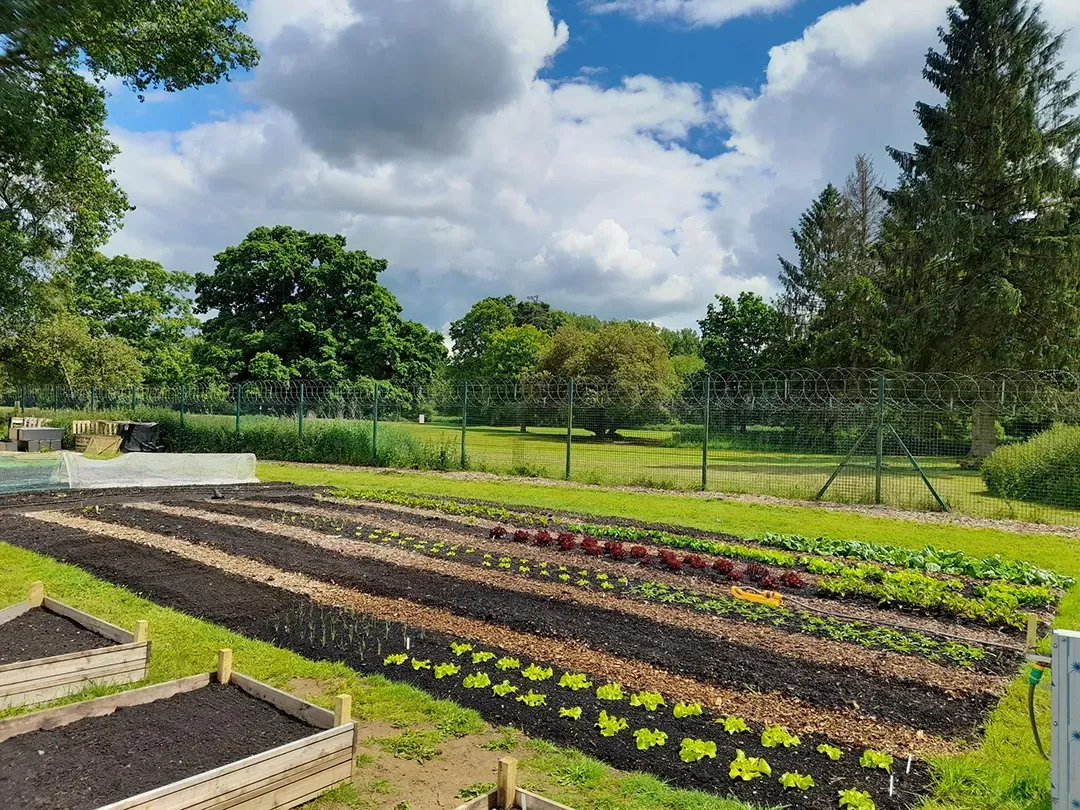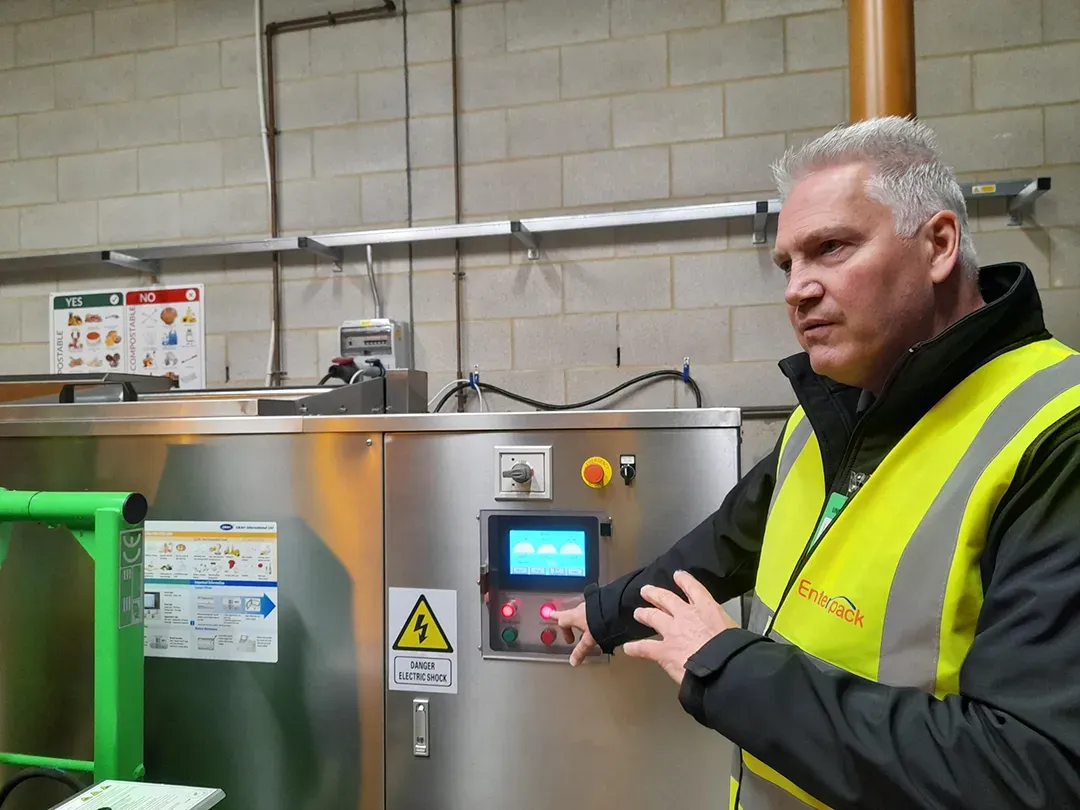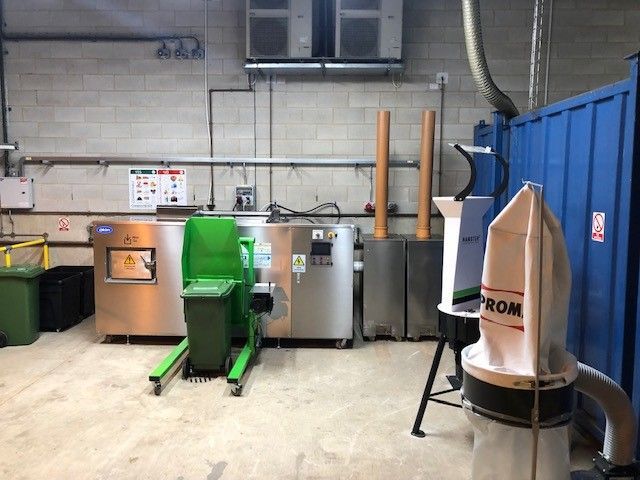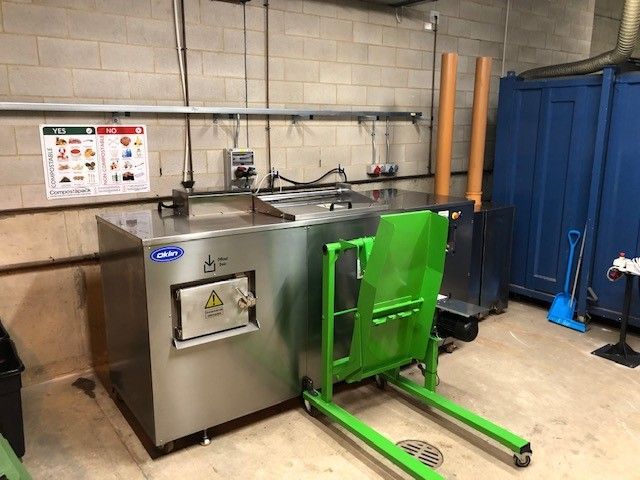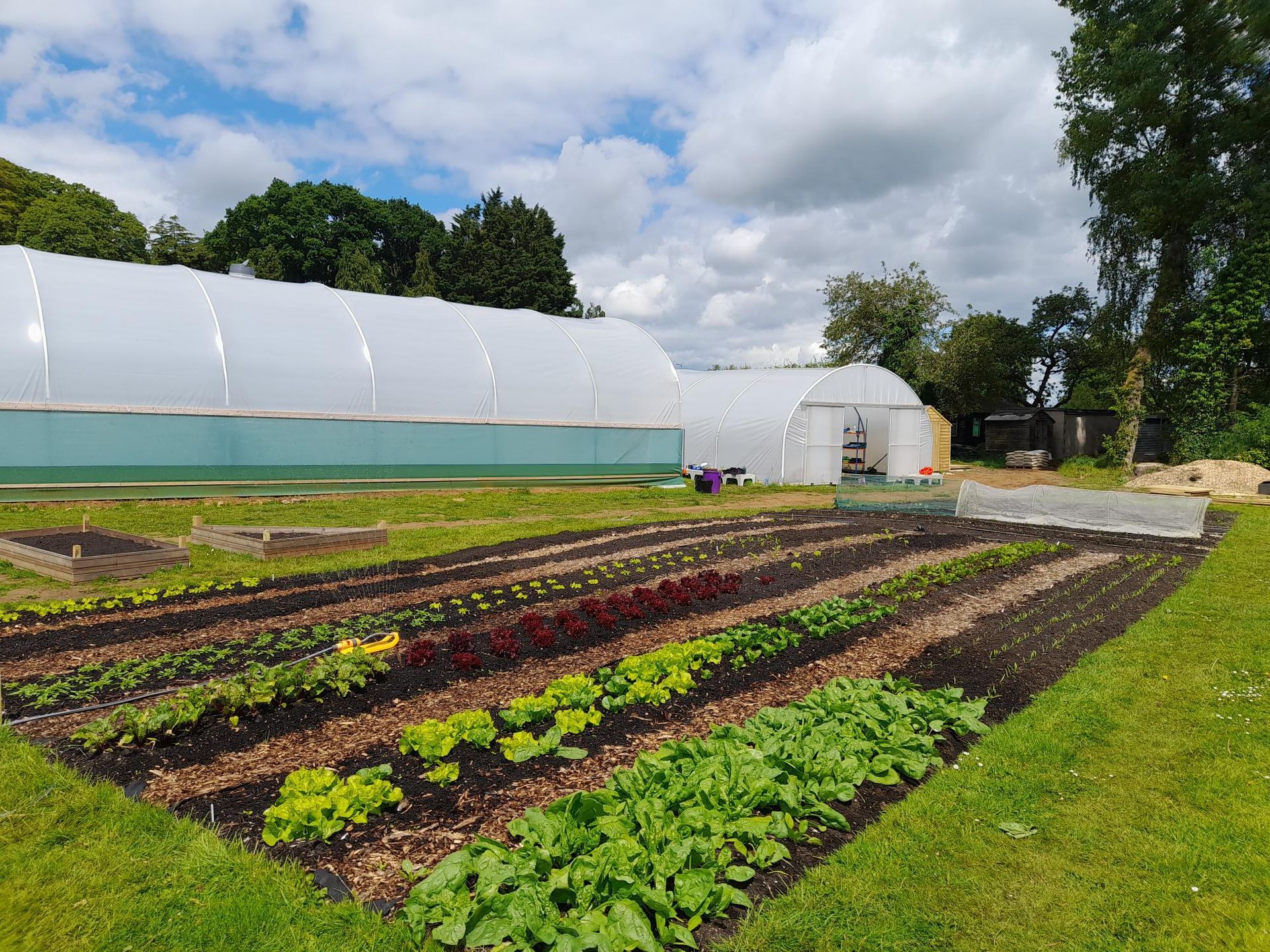Government Facility Reducing Carbon Footprint with Oklin GG100s
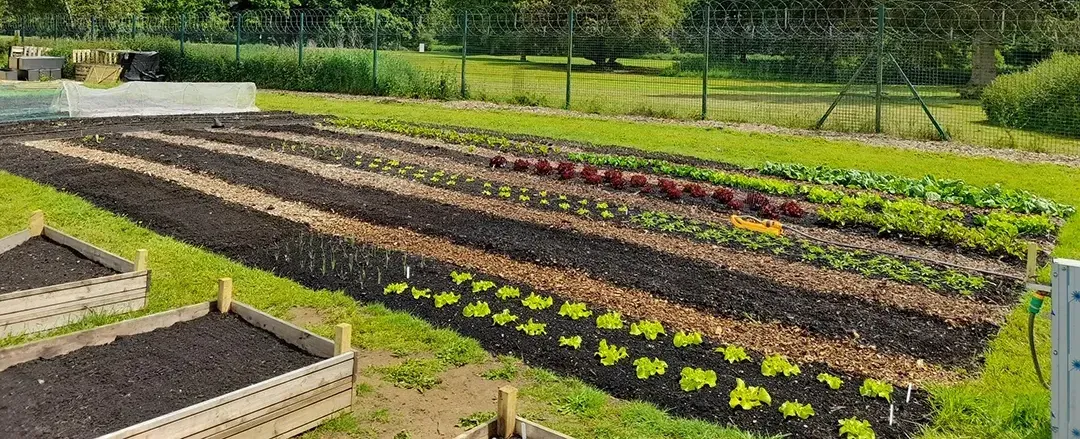
Customer:
Contract Foodservice Company
Industry:
Government
Challenge
A large government facility serving up to 7,000 people generates significant food waste across its restaurant outlets and retail locations. Traditional waste disposal methods relied on bin lorry collections, contributing to environmental impact and inefficiency. Additionally, many UK councils lack facilities to compost food waste and compostable packaging, leading to methane-producing landfill waste.
Solution
To address these challenges, the facility installed the Oklin GG100s food waste composting machine alongside an SM3 Shredder for compostable packaging waste. This system enables on-site processing of food waste, creating a closed-loop waste management system that significantly reduces reliance on external waste collection and landfill disposal.
Benefits
Up to 90 %
Food Waste Reduction
The Oklin GG100s composting machine processes 300kg of food waste per day, and reduces its volume by up to 90%.
Reduced
Carbon footprint
On-site composting eliminates the need for frequent bin lorry collections, reducing the facility’s carbon footprint.
Reduced
packaging Waste
The SM3 Shredder ensures compostable packaging is reduced in volume before being added to the machine for efficient composting.

Sustainable
Food production
The compost produced is used on-site, supporting sustainable landscaping and a vegetable allotment for the catering facility.
Implementation Process
Background:
A contract catering company managing the facility sought to meet ambitious environmental targets, including achieving Net Zero by 2050. As part of this initiative, they launched a Climate Net Zero Toolkit to drive sustainable practices across all sites.
Site Survey & Installation:
The facility’s size provided multiple location options for installation. The final placement was in an underground loading bay near the main restaurant, ensuring efficient integration into existing waste management operations. The machine was lifted into place via crane from a flatbed lorry, and its ventilation system was seamlessly connected to the bay’s pre-existing exhaust infrastructure.
Outcome
6,000kg*
Food Waste Processed
Within two months of installation, the facility processed over 6,000kg of food waste, producing 800kg of nutrient-rich compost.
86.7%
Food Waste Reduction
This represents an 86.7% reduction in waste volume.

Self-sufficient
food production cycle
The compost directly benefits the facility’s grounds, enhancing sustainability efforts and contributing to a self-sufficient food production cycle.
Lower
Environmental Impact
The site is operating a closed loop food waste management system and reducing their environmental impact by reducing bin lorry collections.


